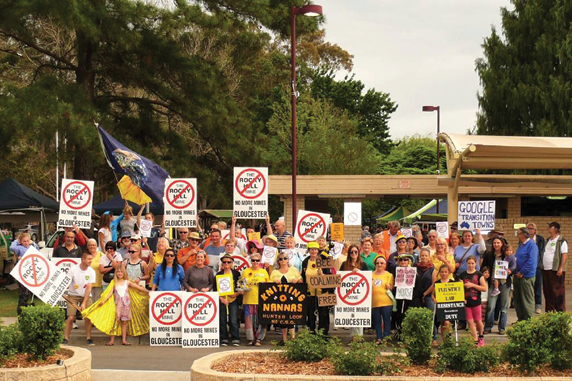Elaine Johnson is a principal lawyer at the Environmental Defenders Office in NSW. With over ten years of experience in environmental law, Johnson spearheaded the “Rocky Hill” case which led to the first rejection of a coal mine by an Australian court on the basis of climate change.
The Environmental Defenders Office ran this case for the local community in the Gloucester region of NSW. I worked as the solicitor on record and our client was a group named Groundswell Gloucester, who came to us seeking assistance regarding a coal mine application proposed for their area in the Gloucester Valley.
The coal mining company, Gloucester Resources Limited (GRL), originally had been refused consent for the Rocky Hill mine by the Planning Assessment Commission in NSW on the grounds that it would cause unacceptable impacts for the community. GRL then appealed that refusal to the NSW Land and Environment Court in a merits review.
We applied on behalf of our client to join the case and raise matters such as the social and climate change impacts of the mine. GRL opposed that application but ultimately we were successful in joining the case. Importantly, we were able to adduce expert evidence from Professor Will Steffen, a well-renowned and respected climate scientist, who detailed the climate impacts of this new coal mine.
We were successful in raising those issues before the court and for the first time in Australian history, a court refused a coal mine on grounds which included the impacts of global climate change. That was a very significant outcome, not only for our clients but also for the broader community in NSW and across Australia.
From a legal perspective it was important because, for the first time ever, a superior court of record recognised there was a causal link between a fossil fuel producing activity undertaken here in Australia and the impacts on the global climate, which in turn affects our communities. The judgment has had a global reach due to the significance of a court drawing those links between the mining of coal and the contribution to climate change.

Chief Judge Preston recognised that although climate change is a global problem, the solution to climate change will come by mitigating emissions at multiple sources. Therefore, the responsibility to take climate impacts into account comes at all different levels. For me, the case highlights that dealing with climate change isn’t just a matter for the federal government or the international community; it comes into local planning and regulatory decisions.
The Chief Judge made the point that it’s about timing. We are at a point where we urgently need a rapid and deep decrease in emissions, to avoid the most dangerous and catastrophic climate change impacts. Had this proposal been before the court 10 years ago, maybe the outcome would have been different. But today the science tells us we are at a point where we cannot afford to lock in long-term fossil fuel projects that contribute to emissions globally.
For me personally, working on this case was a pivotal moment in my career as a public interest environmental lawyer. It was a huge privilege to work with this community and put this important science to the test in their case against GRL. The impacts of climate change are already being felt in Australia, as we saw during the recent devastating bushfire season. This judgment is something we can build on, and are building on, to help our clients minimise climate impacts in Australia and ensure a safe future for everyone.




